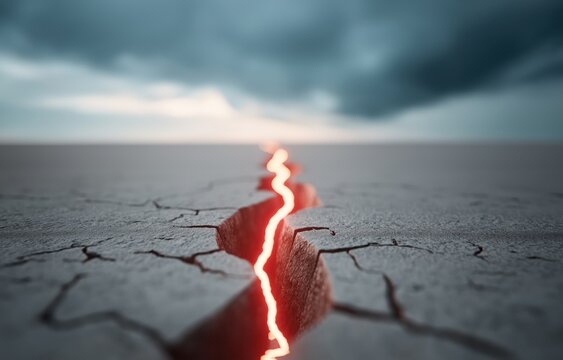Self-Healing Materials: Infrastructure That Repairs Itself Automatically
An in-depth look at autonomous repair materials transforming construction and manufacturing through automatic damage detection and self-restoration capabilities

Self-Healing Materials: The Future of Autonomous Infrastructure
Materials science has reached a turning point where infrastructure can literally heal itself. These smart materials detect damage and initiate repair processes without human intervention — a concept that's captured attention across industries and even sparked interest in prediction markets like live 1xbet, where engineers and investors can now place informed bets on durability benchmarks and maintenance cost reductions when buildings incorporate these technologies.
Engineering Breakthroughs in Self-Repair Systems
Self-healing materials operate through various mechanisms, each suited to different applications. Polymer self-healing mechanisms show how embedded microcapsules release healing agents when cracks form. Research from MIT demonstrates that concrete embedded with limestone-producing bacteria can seal cracks up to 0.8mm wide automatically.
Key applications of self-healing technology include:
- Bridge deck concrete that seals micro-cracks before water penetration occurs
- Aerospace composites that repair impact damage during flight operations
- Automotive paint systems that eliminate scratches through heat activation
- Underwater cables that maintain integrity despite constant pressure changes
- Building facades that restore weatherproofing without scaffolding access
The numbers tell a compelling story. Self-healing concrete can extend infrastructure lifespan by 50-100 years compared to traditional materials. In aerospace applications, self-repairing composites reduce maintenance costs by approximately 30% over an aircraft's operational lifetime.
Economic Impact and Performance Metrics
The financial implications of self-healing materials extend far beyond initial installation costs. Infrastructure maintenance cost analysis reveals that autonomous repair systems can reduce long-term maintenance expenses by 40-60% across different sectors.
Consider the Netherlands' experience with self-healing asphalt. Roads embedded with steel wool fibers can be reheated using induction heating, allowing the asphalt to flow and seal cracks. This process costs roughly $0.50 per square meter compared to $25 per square meter for traditional patching methods.
But here's what's particularly interesting: the predictability of these systems has created new opportunities for performance-based contracts. Construction companies can now offer guarantees based on measurable self-repair capabilities, fundamentally changing how we think about infrastructure warranties.
Future Applications and Market Development
The scope of self-healing technology continues to expand into unexpected areas. Smart textiles now incorporate shape-memory alloys that restore fabric integrity after tearing. Medical implants use biocompatible polymers that adapt and repair themselves within the human body.
Manufacturing sectors are adopting these materials at accelerating rates. Automotive companies report that self-healing paint systems have reduced warranty claims related to minor scratches by 70% since 2020. The technology works through a combination of heat activation and UV exposure — essentially allowing cars to fix their own cosmetic damage.
What's remarkable about current development trends is the convergence of different healing mechanisms. Researchers at Stanford have created materials that combine mechanical, thermal, and chemical repair processes. These multi-modal healing systems can address various types of damage simultaneously, creating redundancy that traditional materials simply can't match.
The construction industry has been particularly receptive to self-healing concrete formulations. Major infrastructure projects in Japan and Europe now specify self-healing concrete for critical applications. The Sagrada Familia restoration project incorporates self-healing stone treatments that respond to weathering damage automatically.
Market analysts project that self-healing materials will represent a $7.6 billion market by 2027, driven primarily by infrastructure applications. This growth reflects both technological maturity and changing attitudes toward maintenance-free construction.
From my perspective, the most significant development isn't just the technology itself — it's how these materials are changing our relationship with the built environment. We're moving toward infrastructure that maintains itself, reducing both costs and environmental impact through extended service life.
The implications extend beyond simple cost savings. Self-healing materials could transform how we design cities, build transportation networks, and create manufacturing systems. When materials can repair themselves, we can pursue designs that would be impractical with traditional materials requiring regular maintenance access.
This shift represents a fundamental change in engineering thinking. Instead of designing for eventual failure and replacement, we're now designing for continuous self-renewal. That's a profound transformation that will reshape how we build and maintain the physical world around us.
Related:
Casino & Sports Links on Feedinco
- ⚽️ Betway Prediction
- ⚽️ 1xBet Prediction
- Best Casino Bonus
- Online Casino Bonus
- Mobile Casino Bonus
- New Online UK Casinos
- Football Free Bets
All Sports Predictions
- ⭐ Super Tips
- 🔥 HOT Football Tips
- ⚽️ Sports FREE Bets
- ⚽️ Best Betting Sites
- ⚽️ Sure Tips for Today
- ⚽️ Football Tips
- ⚽️ Daily ACCA tips
- ⚽️ Tip of the Day
- ⚽️ Soccer Prediction
- ⚽️ Winning Predictions
- 🔥 Best Prediction Site
- 🔎 Accurate Soccer Predictions
- 💸 Jackpot Predictions
- ⚽️ TODAY BETTING TIPS ⚽️
- BTTS Today
- Over 2.5 Prediction
- Full time Prediction
- Double Chance Prediction
- ⚽️ TOMORROW BETTING TIPS ⚽️
- Both Teams to Score Tomorrow
- Over 2.5 Goals Tips
- HTFT prediction
- 12 Betting Tips
- 🎾 TENNIS TIPS 🎾
- 🎾 Tennis Betting
- 🎾 Tennis Tips 1x2
- 🎮 ESPORTS TIPS 🎮
- 🎮 eSport Betting
- 🎮 eSports Predictions
- 🎮 eSports Betting Tips
- 🎮 Counter Strike Predictions
- 🎮 Dota 2 Tips
- 🎮 Overwatch Tips
- 🎮 LoL Tips
- ⭐ Casinos ⭐
- New Online UK Casinos
- Casino Free Bets NO deposit
- New NO Deposit Slots + FREE spins
- NEW Casino NO Deposit Bonus Codes
- Best Slot Sites UK
- Free spins NO deposit Mobile casino
- FREE Roulette Spins NO deposit
- Best Online Casino NZ [free pokies]
- Best Online Casino Canada
- FREE Casino Slots South Africa [no deposit bonus]
- Online Casino Games India [Online Casino, Online Roulette]
- Best Casino Bonus
- Online Casino Bonus
- Mobile Casino Bonus











































